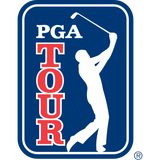
Why a bettor laid $2 million in British Open bets to win $35k; 'strategy is simple'
The public sports betting masses normally like to bet on which teams or players are going to win. They also like to wager a little to win a lot. And, there's nothing wrong with that.
But if you can overcome those mental blocks or just look at things from a different perspective, there are opportunities to profit.
Well-known professional bettor Rufus Peabody lives for those opportunities.
In last week’s Open Championship, as part of his wagering portfolio, he had nearly $2 million spread across eight bets, with each wager on a player not to win the tournament.
"My strategy is simple: To bet when we have an advantage," Peabody said. "We find edges betting golfers at 300/1 odds, as well as laying them at 1/300 odds. These bets have very different risk/reward profiles, but both can help grow your bankroll."
An example of these types of bets is exemplified by Peabody’s six-figure bet on Tiger Woods not to win the British Open.
The co-founder of Unabated Sports took a few minutes to explain that wager and several more that led to a winning Open weekend.
Simulation Success
Peabody and his betting group put $330,000 on their Woods No bet, to win a mere $1,000. Which at first blush seems preposterous for 95% or more of bettors. But hear him out, and you’ll understand more about how professional bettors approach their craft.
First, Peabody began with Woods’ odds to win the British Open. At multiple sportsbooks, that price was +30000 or more (300/1). That means a $100 bet would’ve cashed for $30,000 if Woods won. But he was never in it and missed the cut, as the odds suggested would be the case.
Further, in doing his homework pre-tourney, Peabody learned that Woods’ odds to win should’ve been much longer.
"Woods won the tournament in only eight of the 200,000 simulations I ran, which equates to odds of 24,999/1," Peabody said.
That’s nowhere near where sportsbooks had it. Therefore, Woods’ fair odds of not winning should’ve actually been significantly longer.
"I bet Woods No at 1/330 odds, when I thought the odds should be 1/24,999." Peabody said.
If you think Peabody and his partners are crazy for placing such a bet, then remember that sportsbook operators lay these kinds of bets every day. When a bettor places a wager on Woods to win at 300/1, the book is on the other side, laying 1/300.
Rinse and Repeat
Peabody and his betting group repeated the formula for seven other golfers, including a few among the top 20 or so contenders on the British Open odds board:
- $221,600 on Bryson DeChambeau No -2216, to win $10,000
- $260,000 on Tommy Fleetwood No -2600, to win $10,000
- $262,300 on Brooks Koepka No -5246, to win $5,000
- $73,800 on Robert Macintyre No -6276, to win $1,175.91
Now comes more of the math lesson, as Peabody explained more of his reasoning.
"Take Bryson, for example. My fair price on him not winning was -3012, a 96.79% implied probability. So selling him at -2216, a 95.68% implied probability, has an edge of 1.15%," Peabody said. "A 1.15% edge seems very small, and it is, but that is per dollar risked. And when you're laying a big price like we were, you are able to risk more.
"You have to look at the edge relative to its risk/reward profile," Peabody continued, noting he utilizes the Kelly Criterion, a formula that helps determine the optimal bet size, based on total bankroll.
Peabody proceeded to explain the process further: If a sportsbook has a $1,000 limit, the max bet size on a favorite allows a bettor to win $1,000. So, while a 1.15% edge on $1,000 risked is only $11.15, if that bet is on a -2216 favorite, then a bettor can wager 22.16 times as much as they can on a plus price.
The ability to wager significantly more money makes the 1.15% edge a little more appealing.
Peabody ended up winning all eight of his No bets, for a profit of $35,176.
That said, these bets don't always win. Peabody pointed out that last month, he and his group laid $360,000 to win $15,000 on DeChambeau not to win the U.S. Open. That was a stinging loss.
A Winner Also Needed
After the British Open, Peabody noted that while his No bets did well, he still needed Xander Schauffele to come through and win the tournament to make money on his winner bets. That made it a winning weekend overall for Peabody and his team.
"We bet on Xander at various different odds. Pre-tourney, we bet him at prices between +1400 and +1500. We bet him at +700 after Round 1," he said, adding that post-Round 2, he bet additional money on Schauffele +1300.
Still, the winning No bets were a key part of the portfolio, as the nearly $2 million in wagers shows. But Peabody said even bettors with much smaller bankrolls can apply that logic.
"Bet size doesn’t matter. One could do the same thing with a $1,000 bankroll," he said. "In fact, all of this is easier the smaller the bankroll one has. But most recreational bettors just want lottery-type payouts. And it's hard to find competitive pricing laying golfers, other than with exchanges."
SportTrade is the lone betting exchange operating in the United States, with markets in New Jersey, Colorado and Iowa. But exchanges are more common in the United Kingdom.
Patrick Everson is a sports betting analyst for FOX Sports and senior reporter for VegasInsider.com. He is a distinguished journalist in the national sports betting space. He’s based in Las Vegas, where he enjoys golfing in 110-degree heat. Follow him on Twitter: @PatrickE_Vegas.
Want great stories delivered right to your inbox? Create or log in to your FOX Sports account, and follow leagues, teams and players to receive a personalized newsletter daily!

